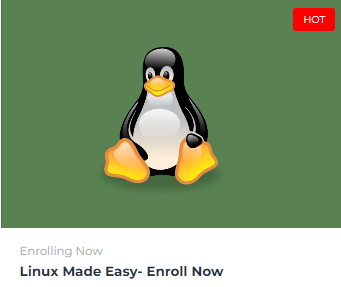DevOps Interview Questions and Answers
- December 19, 2022
- Posted by: admin
- Category: DevOps

Preparing for Interviews…
Job expectations will differ from organization to organization; so are the interviews. Hence, the need to prepare for job interviews with the role’s job description as a guide.
We have compiled some sample DevOps interview questions that you may encounter during a job interview. We have also accompanied each question with a recommended answer.
1. What is DevOps and how is it different from traditional software development?
Recommended Answer:
DevOps is a software development methodology that focuses on collaboration and communication between the developers and members of the operations teams. It is intended to enhance the speed and efficiency of software delivery by introducing automation to reduce errors and enhance the quality of the software. The traditional software development approaches on the other hand, usually have the developers and the members of the operations teams working independently with less collaboration.
2. Could you describe your experience with continuous integration and continuous delivery (CI/CD)?
Recommended Answer:
Continuous integration is a practice that involves the merging of code changes frequently into a shared code repository. While, continuous delivery is the practice of automatically building, testing, and deploying codes to production.
My experience with CI/CD includes:
- Setting up automated build and deployment pipelines using Jenkins, GitHub Actions, or Azure DevOps.
- Working on implementing automated testing and code quality checks as part of the CI/CD process.
3. How do you monitor and troubleshoot production issues in a DevOps environment?
Recommended Answer:
Monitoring and troubleshooting production issues are important components of the software development process. Some tools and techniques I have adopted include:
- Log analysis: Splunk, ELK, or Azure Log Analytics can be used to search, analyze, and visualize log data to identify and diagnose issues.
- Performance monitoring: New Relic, AppDynamics, or Azure Monitor can be used to monitor application and system performance and identify potential issues.
- Alerting and notification: These can be used to notify members of potential outages/issues, and to trigger automated responses.
4. How do you ensure the security and compliance of your applications in a DevOps environment?
Recommended Answer:
Security and compliance of applications are key to the development and deployment process. I have addressed these using the following:
- Automated security testing: OWASP ZAP or Veracode can perform automated security testing during the CI/CD process.
- Compliance with industry standards and regulations: Work to ensure that applications meet relevant security and compliance standards (like PCI DSS or HIPAA).
- Encryption of sensitive data: Ensure that sensitive data such as passwords or financial information is encrypted in transit and at rest
5. Could you describe your experience with infrastructure as code (IaC)?
Recommended Answer:
Infrastructure as code (IaC) is the use of code and automated tools (rather than manual configuration) for managing and provisioning infrastructure. IaC tools include Terraform, CloudFormation, and Ansible. They are used to define and manage infrastructure resources as code. This makes it possible for easier collaboration, version control, and testing of infrastructure changes, as well as faster and more consistent infrastructure deployment.
6. Could you explain your experience with configuration management in a DevOps environment?
Recommended Answer:
Puppet, Chef, or Ansible can be used to automate the management of configuration files and system settings. This makes it possible to easily track, manage, and deploy changes to the configuration.
7. Could you describe your experience with containerization and container orchestration?
Recommended Answer:
Containerization is the packaging of applications and their dependencies into lightweight, standalone containers that can be deployed with ease and run on any infrastructure. Container orchestration is the management, coordination, deployment, and scaling of containerized applications. I have used Docker for containerization, and Kubernetes for container orchestration. Other tools I have used for container orchestration include AWS ECS and Nomad. I have also implemented auto-scaling for containerized applications.
8. How do you achieve the scalability and reliability of your applications?
Recommended Answer:
Working on achieving the reliability and scalability of applications is an important component of the DevOps process. I have achieved these through:
- Automated testing: Worked to ensure that code changes do not break existing functionality.
- Performance monitoring: New Relic, AppDynamics, or Azure Monitor can be used to monitor the performance of applications and identify potential issues.
- Scalability planning: Used strategies such as auto-scaling to ensure that applications can handle increased load or traffic
9. Could you describe your experience with cloud computing/cloud-based infrastructure?
Recommended Answer:
Cloud computing is the use of computing resources (like storage, servers/VMs, networks, and databases) over the internet, rather than using on-premises/physical devices. Some cloud platforms I have worked with include AWS, Azure, and Google Cloud Platform.
10. How do you collaborate and communicate with your team members?
Recommended Answer:
Collaboration and communication are key to the success of a DevOps team. Some of the ways I have collaborated and communicated with my team members include:
- Regular meetings and stand-up meetings: Participation in daily/weekly meetings to discuss progress, challenges, and priorities.
- Collaboration tools: Slack, Microsoft Teams, or Trello can be used to collaborate and communicate with team members.
- Code review: Participation in code review is an effective way of collaborating with team members.
- Documentation: Documenting processes, policies, and technical details helps to guide other team members.
11. What is DevOps?
Recommended Answer:
DevOps is a set of practices, methodologies, and philosophies that focuses on collaboration and communication between the developers and the members of the operations teams. It introduces automation of the build, test, and deployment processes; thus, making it possible for organizations to deliver software efficiently and effectively.
12. Do you know the key principles of DevOps?
Recommended Answer:
The key principles of DevOps include:
- Continuous delivery: This is the ability to speedily and reliably deliver new features and software updates to users.
- Continuous integration: This is the practice of merging code changes frequently to reduce integration issues and improve the quality of software.
- Collaboration and communication: This involves working closely with all teams involved in the software development and delivery process.
- Automation: This is the use of tools to automate tasks and reduce the need to manually complete tasks.
- Monitoring: This is the use of monitoring tools and metrics to track the performance, reliability, and stability of systems.
13. What is your experience with DevOps tools?
Recommended Answer:
My tool stack comprises:
- Git and Subversion are source control tools for managing code changes and versions.
- Maven and Gradle are Build tools for automating the build process of Java-based applications.
- Jenkins and Travis CI are continuous integration tools for automating the testing and deployment process.
- Puppet, Chef, and Ansible are configuration management tools for automating the configuration of servers and infrastructure.
- Nagios and Zabbix are monitoring tools for tracking the performance and availability of systems.
14. What is continuous delivery?
Recommended Answer:
Continuous delivery involves the automation of software builds, testing, and deployment of updates and new features to users. This will help organizations deliver software/applications/systems more frequently and reliably.
We strongly recommend that you research to get further questions that will closely match the job description you are interviewing for.
Are you interested in learning DevOps or programming? Click here to see the programs we are running.


